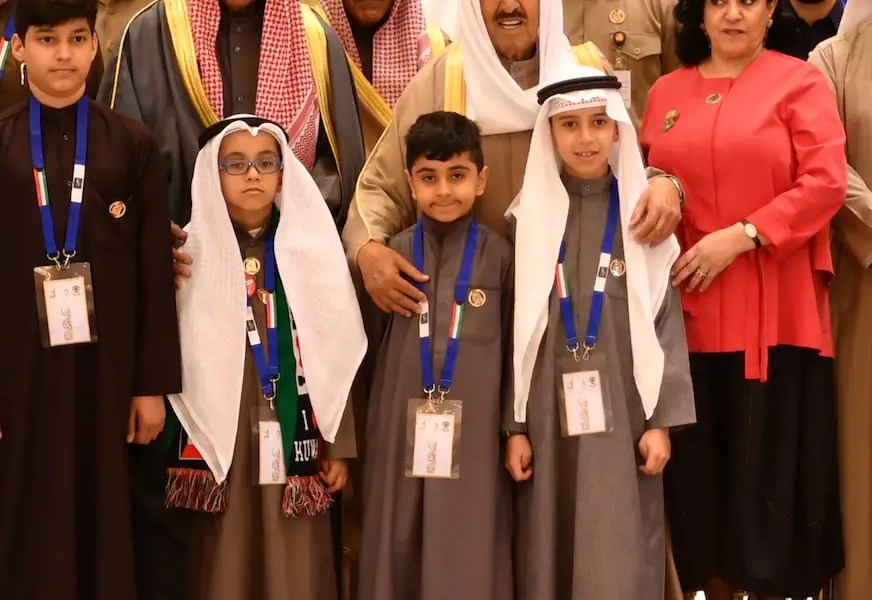
[ad_1]
Sheikh Nawaf al-Ahmad al-Sabah, the 16th Emir of Kuwait, ascended the throne in 2020, not with a flourish of trumpets,but with the gentle sigh of a nation navigating the uncertainty of loss.
His half-brother, the beloved Sabah al-Ahmad, had left a void, and Nawaf, a seasoned statesman, stepped into it with a quiet grace that mirrored his life and legacy.
His journey began not in the gilded palaces of Kuwait City, but in the heart of the desert. Born in 1937, Nawaf witnessed the transformation of his nation from a pearl-diving principality to a modern oil-rich state. He served under his father, the Emir Abdullah, learning the art of statecraft with a measured, observant mind.
Governorship of Hawalli, a bustling district on the cusp of the capital, was his first test. He tackled infrastructure challenges with pragmatism, earning the trust of his people. As Minister of Interior, he navigated the turbulent waters of regional politics, his calm demeanor a counterpoint to the volatile landscape.
The Gulf War was a crucible. Nawaf, as Minister of Defense, played a crucial role in rebuilding the nation, his quiet strength a balm to the wounded spirit of Kuwait. He understood the power of unity and dialogue, principles that would shape his later reign.
As Crown Prince, Nawaf remained a silent pillar, supporting his brother while preparing for the mantle of leadership. He learned the art of diplomacy, forging strong relationships with regional powers and advocating for Kuwait’s role as a bridge between East and West.
When Nawaf finally ascended the throne, his ascension was a coronation not of pomp, but of responsibility. He inherited a nation facing economic challenges and a changing world order. His response? A quiet, measured approach, focused on stability and continuity.
He tackled economic diversification, his focus on education and human capital paving the way for a future beyond oil. He prioritized social welfare, ensuring access to healthcare and education for all. He championed regional cooperation, his gentle diplomacy helping resolve disputes and build bridges.
Nawaf’s reign was not without challenges. Critics pointed to his cautious approach, arguing for faster reforms. The whispers of a “silent king” echoed in the corridors of power.
yrBut Nawaf, ever the pragmatist, understood the delicate balance between progress and stability. He knew that in a region prone to turbulence, measured steps were often the safest way forward.

His legacy, then, is not one of grand pronouncements or sweeping reforms, but of quiet stewardship. He was the steady hand on the tiller, navigating Kuwait through choppy waters with a deep understanding of his people and his place in history.
Sheikh Nawaf al-Ahmad al-Sabah, the quiet Emir, may not have left a legacy etched in headlines, but his silent strength,unwavering dedication, and commitment to unity left an indelible mark on the soul of Kuwait. He was a king who understood that sometimes, the most powerful leadership whispers, not roars.
Meet Ahmad, Faisal, Abdullah and Salem, al-Sabah.
Sheikh Nawaf al-Ahmad al-Sabah is survived by five children who are Ahmad, Faisal, Abdullah and Salem, al-Sabah.
[ad_2]
Ghananewshome





